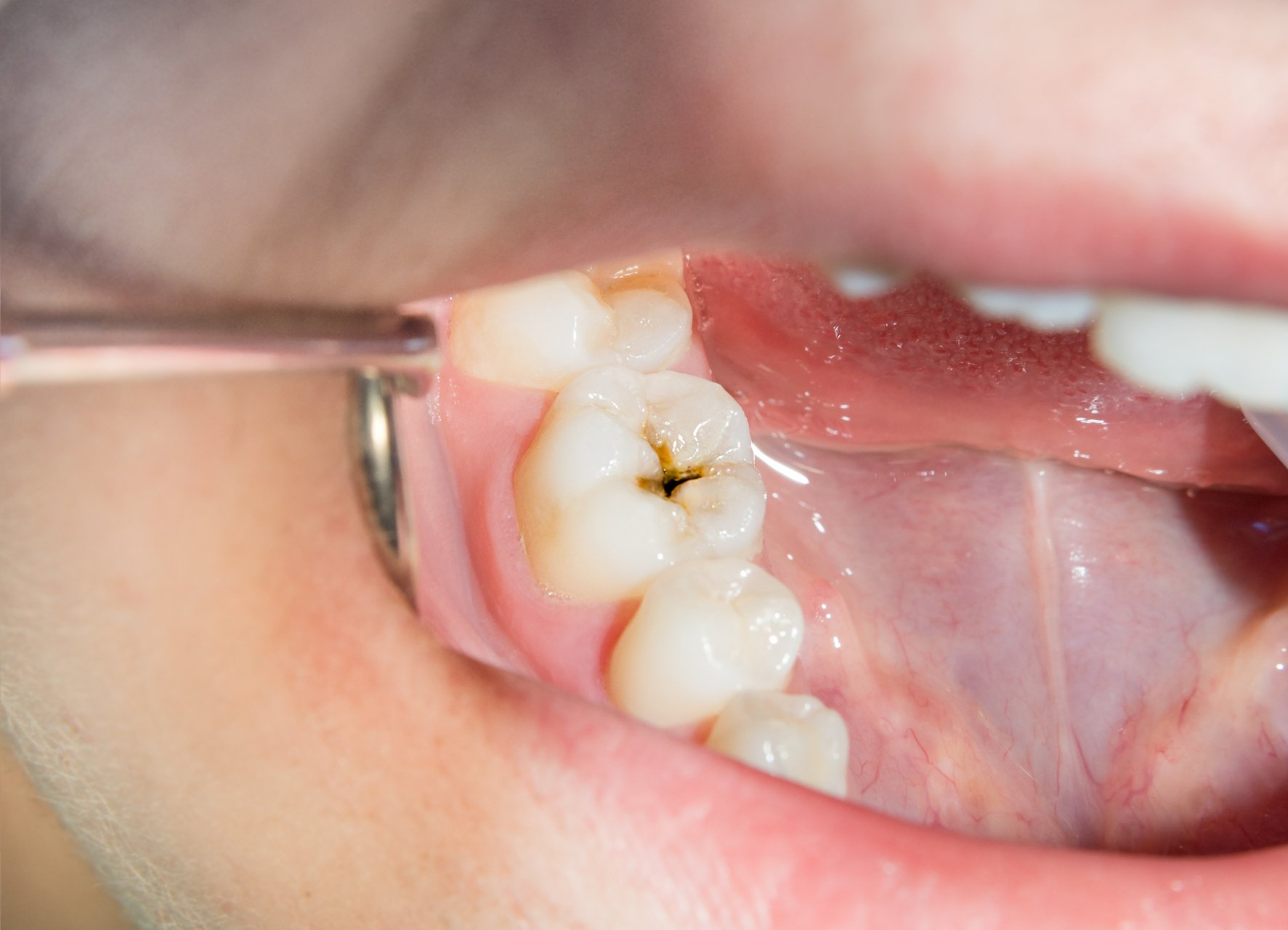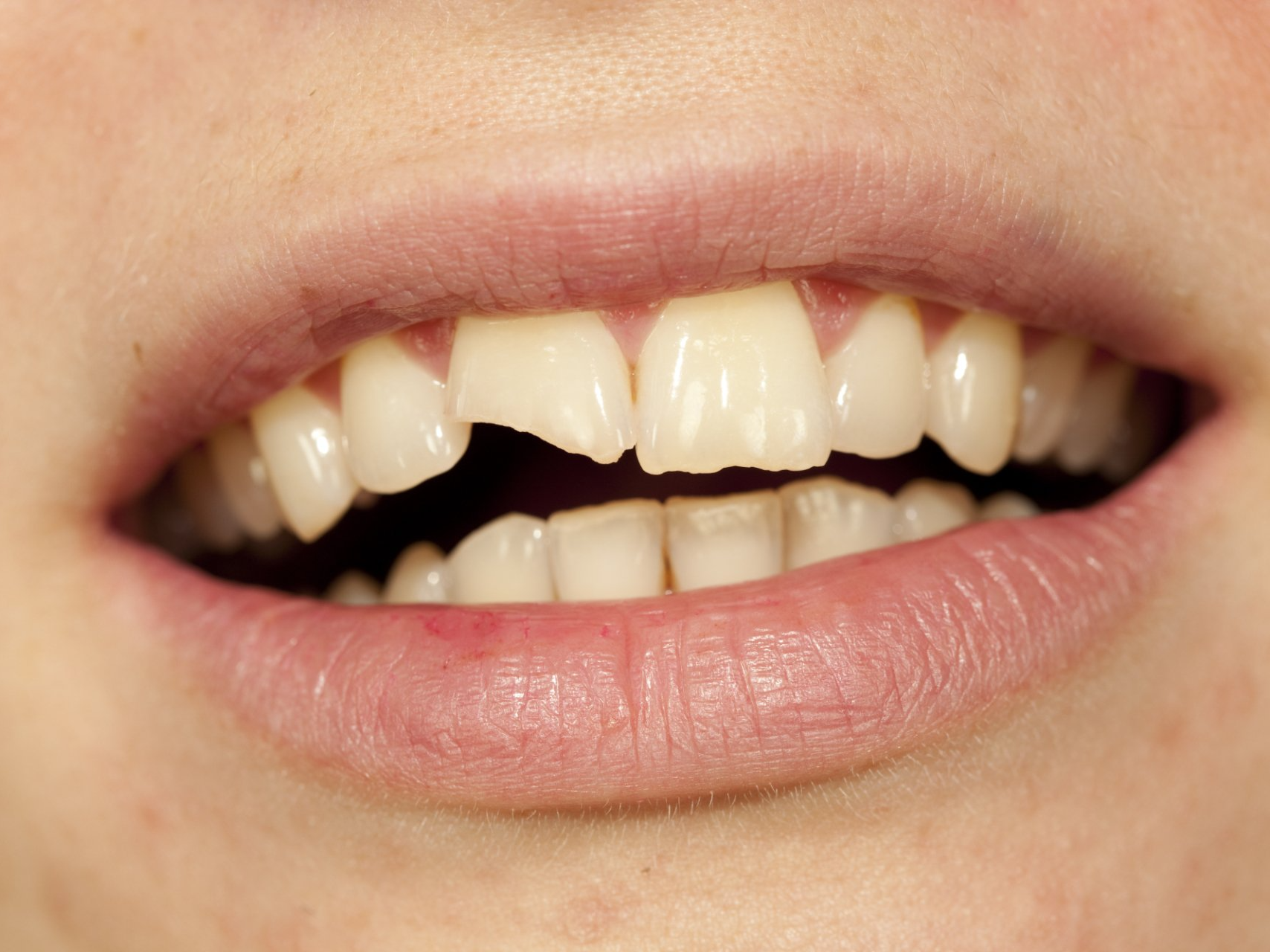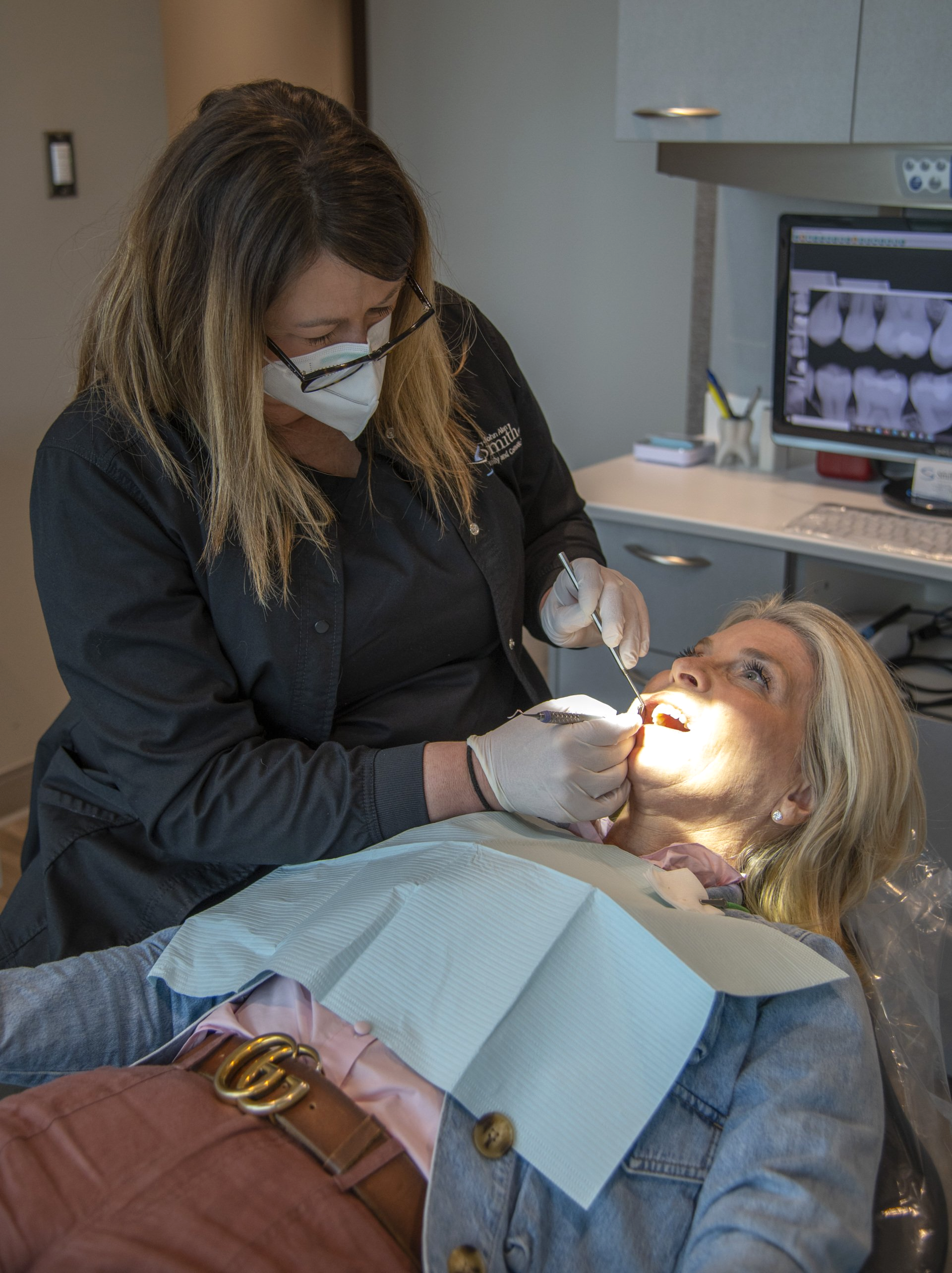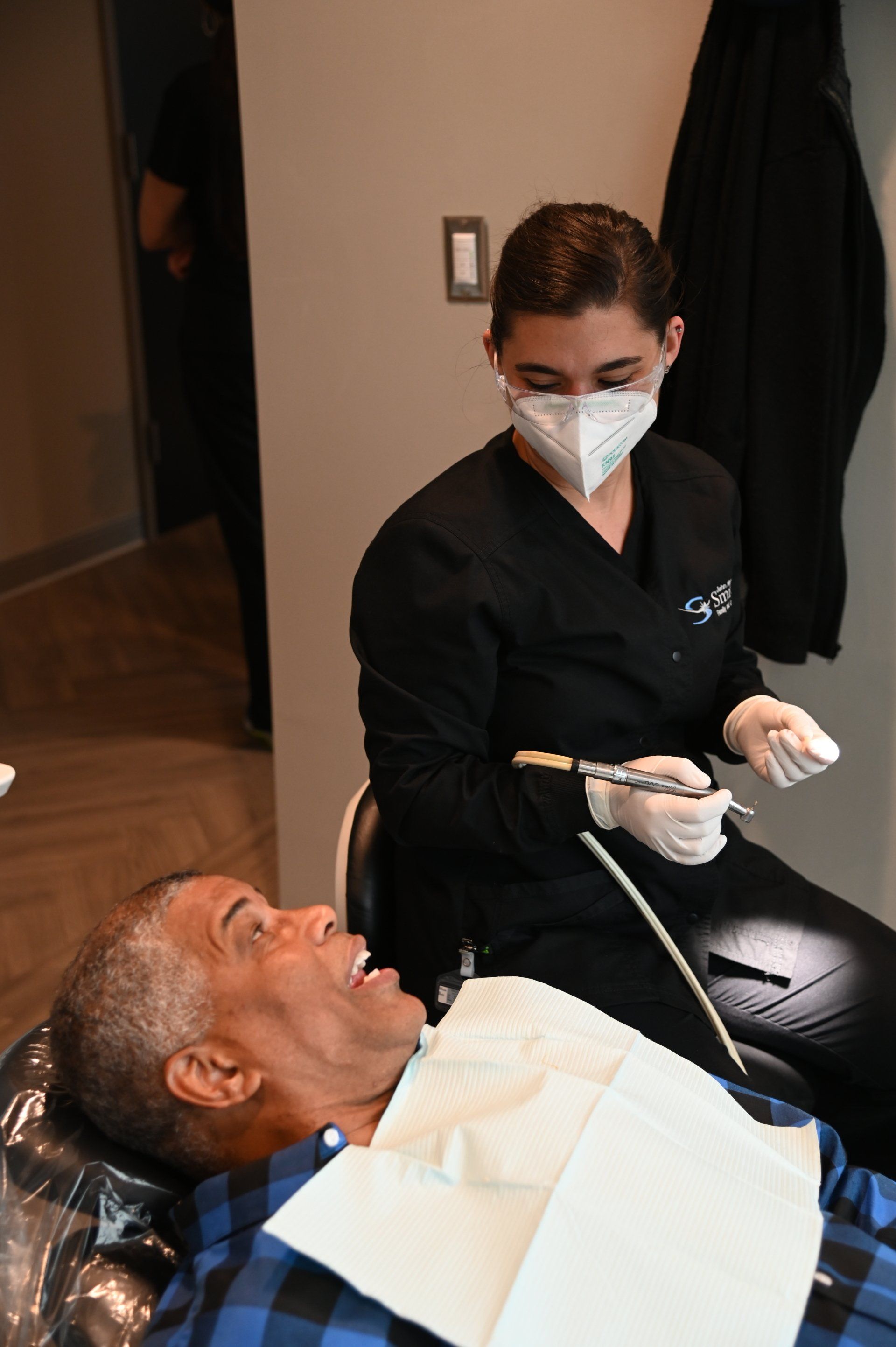New Location: 444 Clinchfield Street, Suite 303 in The Press Building
SERVICES
General Dentistry
Great oral health starts with outstanding care. We aim to provide high-quality dental care in a relaxing, empowering environment, so you can worry less, smile more, and invest in your long-term oral health. Read below to learn more about the General Dentistry services provided by John Alan Smith, DDS and our experienced team.
Slide title
Write your caption hereButton
Prophylaxis (Cleaning)
A dental prophylaxis is what we commonly refer to as a “teeth cleaning” procedure, which is done as a maintenance and preventative treatment method for keeping your teeth and gums healthy. Cleanings should be done every 6 months to maintain healthy teeth, or every 3 to 4 months if you are suffering from periodontitis (gum disease). The benefits that come with regular cleanings include timely screening for any dental health problems, tartar and plaque removal for a brighter smile, and fresher breath. Before the cleaning is performed, you will receive a thorough examination on your gums and teeth to screen for any possible dental issues. Plaque and tartar are removed from your teeth’s surface above the gum line with a scaling tool. The cleaning is completed after your teeth are polished and flossed. A root planing procedure to remove plaque and hardened tartar from the teeth roots may be recommended if you are at risk of gum disease or have gone long periods of time between cleanings.

Slide title
Write your caption hereButton
Tooth Decay Treatment & Fillings
Tooth decay is a very common condition that affects both children and adults alike. Symptoms of tooth decay often include persistent pain in the affected tooth, tooth sensitivity, grey/brown/black spots on the teeth, bad breath, and a lingering unpleasant taste in the mouth. Fortunately, small to midsize cavities can be treated effectively with fluoride treatment and tooth fillings. If the cavity is small enough, a fluoride treatment may be applied to allow the tooth to heal itself and remineralize its enamel. Minor to medium sized cavities are treated with FDA approved silver amalgam fillings, or with tooth-colored composite resin fillings for a more natural look. More serious cases of tooth decay may require more invasive procedures, such as dental crown placement, root canal therapy, or tooth extraction.

Slide title
Write your caption hereButton
Pediatric Patients
We provide comprehensive dental care for children and adolescents in a calm and soothing child-friendly environment. We offer the following pediatric dental services, which include:
- Preventive dental care (cleanings, fluoride treatments, dental sealants, etc.)
- Education and counseling for good oral habits (pacifier use, chewing ice, good dental hygiene, etc.)
- Minor orthodontics (correcting an improper bite, braces to straighten teeth)
- Diagnosis and treatment of all oral conditions and diseases (tooth decay, gingivitis, abscess, etc)
- Repair of dental injuries
Slide title
Write your caption hereButton
Crowns & Implants
Crowns and implants are both excellent procedures for restoring the beauty and strength of your smile. If your tooth is badly damaged from decay or injury, a crown (a tooth shaped cap made of composite resin, porcelain, metal, or a combination of metal and porcelain) may be fitted over what’s left of your tooth to protect it and restore its original shape and function. A crown can also be used as a pontic (artificial tooth) to form part of a dental bridge for the replacement of a missing tooth, or as a cover for a dental implant.
If you have lost a tooth or some teeth, a dental implant may be recommended as a permanent solution. A dental implant is a titanium rod that is surgically implanted into the jawbone to serve as an analog “root” for anchoring an artificial tooth. There are many advantages to having a dental implant, which include: a more solid foundation for your dental bridge or artificial tooth; better support for your remaining teeth to inhibit them from moving away from their original positions; superior comfort and function compared to dentures or dental bridges on their own; preservation of your facial structure and tissues; and the restoration of normal speaking and chewing.
Slide title
Write your caption hereButton
Bridges, Dentures, & Partials
Missing teeth is more than just a cosmetic problem—it can seriously interfere with your normal speaking and eating, affect the health of your remaining teeth, and inhibit your confidence in social situations. We offer proven solutions for restoring your smile, such as fixed dental bridges, dentures, and partial dentures. A fixed dental bridge is one or more false teeth (pontics) that is held in place by abutment or anchoring teeth on each side. It may also be combined with a dental implant for superior strength and stability. A denture is a removable prosthetic device that replaces the full set of teeth on the jaw and its surrounding tissues. A partial denture is used when there is at least one natural tooth remaining on the jaw. Bridges are stronger than dentures and provide better chewing function, though they are still not as strong as real teeth. They last for a long time, though they may need to be replaced or re-cemented in 5 to 10 years. While dentures aren’t as strong as fixed bridges or dental implants, they are still effective in partially restoring chewing function and facial appearance, regaining normal pronunciation and speaking, and reviving confidence in social settings.

Slide title
Write your caption hereButton
Root Canal Therapy
Missing teeth is more than just a cosmetic problem—it can seriously interfere with your normal speaking and eating, affect the health of your remaining teeth, and inhibit your confidence in social situations. We offer proven solutions for restoring your smile, such as fixed dental bridges, dentures, and partial dentures. A fixed dental bridge is one or more false teeth (pontics) that is held in place by abutment or anchoring teeth on each side. It may also be combined with a dental implant for superior strength and stability. A denture is a removable prosthetic device that replaces the full set of teeth on the jaw and its surrounding tissues. A partial denture is used when there is at least one natural tooth remaining on the jaw. Bridges are stronger than dentures and provide better chewing function, though they are still not as strong as real teeth. They last for a long time, though they may need to be replaced or re-cemented in 5 to 10 years. While dentures aren’t as strong as fixed bridges or dental implants, they are still effective in partially restoring chewing function and facial appearance, regaining normal pronunciation and speaking, and reviving confidence in social settings.

Slide title
Write your caption hereButton
Dental Emergencies
We treat all dental emergencies, which include:
- Severe injury to the teeth (chipping or cracking of the enamel, sudden and unexpected loss or displacement of teeth, loose teeth)
- Severe bleeding and swelling of gums and other oral tissues (lips, inside of the cheek, etc)
- Excruciating or persistent pain in the mouth or jaw
- Missing, loose, or damaged dental restorations (crowns, bridges, fillings, and veneers)
- Fractured jaw
Sometimes, it can be difficult to determine the urgency of your situation. We strongly recommend that you call our dental office as soon as possible, so you can describe your symptoms in detail. This way, we can determine the best course of action and avoid an unnecessary trip to the ER. However, you must seek emergency assistance right away if you are experiencing uncontrolled bleeding, pain, and swelling and are having problems with maintaining your vision, breathing, and consciousness.
Learn More about our other services
-
COSMETIC DENTISTRY
Learn More -
RELATED SERVICES
Learn More
Payment Options
We accept cash, bank checks, credit and debit cards, most insurance plans, and Care Credit.
Apply for Care Credit
Make a Care Credit Payment
No insurance? No problem!
Ask about our affordable Membership Plans today!
Contact Us
Hours
Monday-Thursday:
8:00 a.m. to 5:00 p.m.
Every Other Friday:
8:00 a.m. to 5:00 p.m.
Closed Saturday and Sunday
Find us on Google Maps
Let's Connect
John Alan Smith, DDS | All Rights Reserved
Privacy Policy | Website by Infinity Medical Marketing






